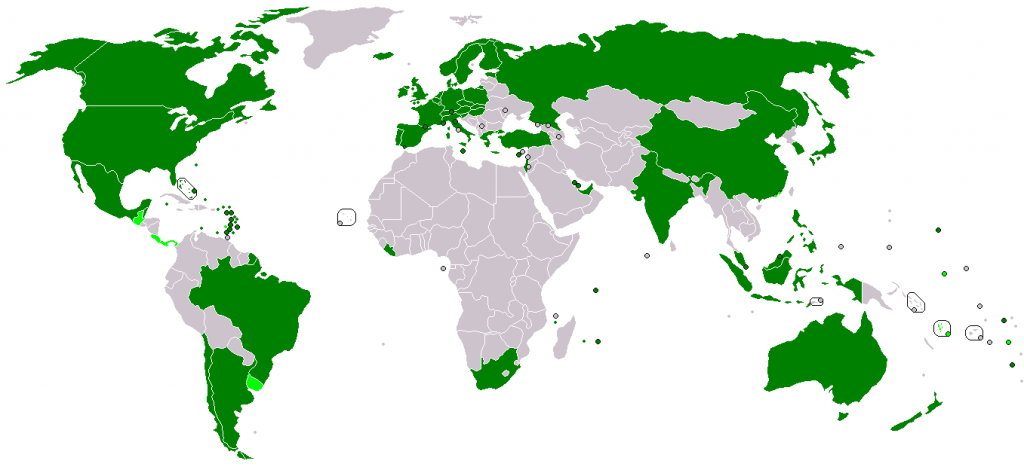OECD acknowledges structural reforms in Hungary, makes further recommendations

The OECD acknowledged structural reforms Hungaryʼs government has undertaken over the past two years in a report on Friday, but said there is still room to reduce bureaucracy for businesses, improve competition in the service sector and reduce the tax wedge on wages, according to wire service MTI.
In its latest “Going for Growth” report, the OECD recognized steps Hungary has taken to ease administrative burdens for businesses but recommended the country improve the transparency, stability and formulation of regulatory policies. Hungary’s Competition Authority (GVH) should become more involved with the legislative process and a dedicated anti-corruption agency should be established, it added.
The OECD said there is “insufficient competition” in retail, professional services and network services and recommended removing sector exemptions, taking a tougher stand on mergers, lowering barriers to entry in the retail sector and facilitating the entry of mobile virtual network operators on the telecommunications market. It also urged the introduction of market-based energy pricing.
The OECD noted that the tax wedge on wages and salaries had been lowered through a reduction in the personal income tax rate and would be cut further by expanding tax allowances for families with children. But it recommended cutting the wedge on lower salaries further through better targeting and the introduction of an employment tax credit that progressively declines with wage levels.
The OECD also recommended Hungary reduce work disincentives for the elderly and improve outcomes and equity, specifically for Roma people, in education. It suggested training in information and communications technology could be applied horizontally, across all subjects.
In a statement issued after the release of the report, the Ministry for National Economy (NGM) said the OECD had failed to take into account when making some critical observations a number of measures the government has taken.
With regard to reducing the tax wedge on low earnersʼ wages further, the ministry said the government had taken a better targeted approach than the OECDʼs recommendations with the introduction of the Workplace Protection Program. The program has successfully put disadvantaged workers in jobs, raising Hungaryʼs employment rate faster than any other OECD country except for the Baltic States in 2010-2015, it added.
The OECD report also failed to acknowledge the governmentʼs recent agreement with employers and unions on raising the minimum wage and cutting payroll taxes over the next several years, the ministry said.
SUPPORT THE BUDAPEST BUSINESS JOURNAL
Producing journalism that is worthy of the name is a costly business. For 27 years, the publishers, editors and reporters of the Budapest Business Journal have striven to bring you business news that works, information that you can trust, that is factual, accurate and presented without fear or favor.
Newspaper organizations across the globe have struggled to find a business model that allows them to continue to excel, without compromising their ability to perform. Most recently, some have experimented with the idea of involving their most important stakeholders, their readers.
We would like to offer that same opportunity to our readers. We would like to invite you to help us deliver the quality business journalism you require. Hit our Support the BBJ button and you can choose the how much and how often you send us your contributions.








